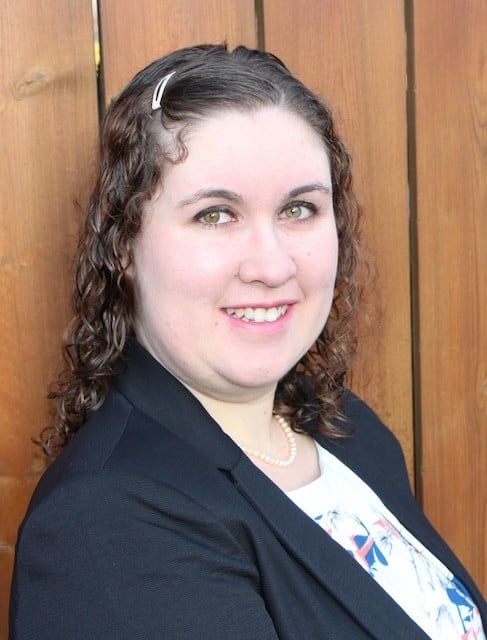If you’ve ever pondered a career in medicine, you’ve probably asked yourself, "how hard is it to get into medical school?" And, "how hard is medical school once I’m there?" There’s no denying it’s a challenge that demands rigorous preparation, competitive MCAT scores, and dedication; but if you’re passionate (and can enthusiastically express why you want to be a doctor), you’ll find it’s incredibly worth it.
In this blog, we’ll break down just how difficult it is to get into medical school, what factors contribute to its competitiveness, and provide practical tips for overcoming common obstacles, so you can stay ahead in this competitive process, whether you feel you require further medical school application help or not.
>>Want us to help you get accepted? Schedule a free initial consultation here <<
Listen to the blog!
How Hard is it to get Into Medical School: The Numbers
Medical school admissions are notoriously competitive. In recent years, the demand for medical education has increased, while the number of available spots has not grown as quickly. Here’s a look at the key numbers from the AAMC:
Mean GPA of Accepted Medical Students = 3.77 (US), 3.7-3.9 (CA)
Mean MCAT of Accepted Medical Students = 511.7 (US), 510-515 (CA)
Mean Acceptance Rate for US Medical Schools = 3.36% (US), 5-20% (CA)
It's important to note that the ranges/numbers above vary between schools, locations, and in and out-of-state applicants.
With such low acceptance rates across the board, it's no wonder that you may feel overwhelmed by the odds of getting into medical school. The rise in applicants, combined with the need for high academic performance and extracurricular achievements, means that the bar is set incredibly high.
Here's how to get accepted — without perfect stats!
How Hard is it to Get Into Medical School: Why Is It So Competitive?
1. High Academic Standards
Admissions committees weigh GPA requirements and MCAT scores heavily; while the average matriculant MCAT score is 511, the average applicant score is 505; meaning that even if your MCAT score and GPA are average among other hopeful premeds, it doesn’t guarantee you’ll stand out. While some schools may give consideration to a holistic review, these two metrics remain the cornerstone of any competitive application. That’s why rigorous studying for the MCAT, and even enlisting the help of an MCAT prep expert, is so vital for premeds!
2. Limited Seats and High Demand
Despite more medical schools opening in recent years, the number of seats has not kept pace with the increasing number of applicants. This results in a highly selective process, with many qualified applicants being rejected simply due to limited capacity.
3. Extracurriculars and Experience
Medical schools look for well-rounded candidates with meaningful clinical experience, leadership roles, shadowing hours, research involvement, and volunteer work. Gaining such experience can be taxing for many students; non-academic requirements for med school are understandably time-consuming, which is a factor that makes admissions more challenging! Depending on the type of extracurricular, some students may face financial barriers as well. If you’re worried about not having enough non-academic experience, try updating your med school CV early on to gauge whether or not you could be a standout applicant.
How Can You Improve Your Chances of Getting Into Med School?
While medical school admissions are difficult, they aren’t impossible, especially if you’ve put in the work.
Here are some key steps you can take to boost your chances of acceptance:
1. Start Early
Preparing your medical school application is not something that can be done overnight. Ideally, you should begin working on your extracurricular activities, clinical experiences, and academic performance well before you even start your application. You may have known you wanted to be a physician from an early age—you may have even planned out your path to medical school in high school. Or, perhaps you discovered your passion halfway through your undergrad degree. Either way, you must seek genuine experiences to enhance your status (and chances) as an applicant and dedicate yourself to your academic performance.
Note: some students with a low GPA may opt for a gap year, or opt for a medical school that accepts a lower GPA.
2. Focus on the MCAT
The MCAT is one of the most important elements of your application. Consider self-paced MCAT prep and practice tests, doing thorough MCAT and MCAT CARS prep, joining a study group, hiring a tutor, and extensively reviewing high yield MCAT topics. No matter how you prepare, studying diligently to ensure you can score competitively cannot be recommended enough.
3. Build Strong Relationships for Letters of Recommendation
Letters of recommendation from professors and supervisors play a crucial role in demonstrating your commitment and capabilities. Make sure to nurture these relationships genuinely throughout your academic and professional journey; the last thing you want is a mediocre, stale letter from a professor or physician whom you’ve barely made an effort to know. You should spend time during office hours, and/or seek opportunities outside of class (such as shadowing, volunteering or interning) to foster such relationships. While some medical schools do not require letters of recommendation, it’s essential you have a handful of referees who can speak to your skillset and passion.
4. Craft a Compelling Personal Statement
Your personal statement is where you can truly stand out; it’s imperative you don’t just state a few facts or experiences, but truly detail (as concisely as possible) what you’ve learned from them and why they make you an excellent candidate. Use this opportunity to convey why you want to pursue medicine, how your experiences have shaped you, and why you are a good fit for the field.
5. Prepare for Interviews
If you make it to the interview stage, your ability to articulate your motivations and experiences in a calm, authentic manner, becomes crucial. Medical schools are looking for students who can communicate clearly and demonstrate a genuine passion for medicine. Spending a few months focusing on how you can best prepare for your medical school interview is key; you’ll want to know how to prepare for MMI questions, how to navigate even the weirdest questions, how you can remain poised and professional, and even review how to send a thank you note and leave a lasting impression!
Interview preparation is crucial, and many students find the interview process daunting, including our former students:
"Initially, I felt overwhelmed by the amount of prep resources, but working on MMI questions with BeMo really helped me feel prepared." – Sherry, Former BeMo Student
"Mehdi simulated a very effective mock interview by providing very good follow up questions for the entire length of the allotted time at each MMI station. The feedback he provided was excellent because I was able to understand not just what my areas for improvement are, but how I can improve them." – Milan, Former BeMo Student
Practice with these hardest medical school interview questions!
How Hard Is Medical School Once You're In?
Getting into medical school is only the first step—once you're there, the real challenge begins. Medical school is demanding, not just in terms of time but also in mental and emotional resilience.
"While medical school is tough, finding the balance between work and personal time makes it more manageable,” One of our consultants, Dr. Neel Mistry, advises: "Work hard, but also make time for yourself and your friends. It’s important to have that support system.”
In our opinion (based on our team of MD consultants and the students we’ve worked with), here are some of the more gruelling parts of medical school:
1. Intellectual Demands
Medical school covers vast and complex material at a fast pace. Memorization alone isn’t enough; you’ll need to apply critical thinking and problem-solving skills to real-world situations. Learning how to study in med school might feel different than the pressure of your undergraduate studies. You may wish to form stricter habits, join a study group, consult a mentor, and dedicate weekends and evenings to immersing yourself into your work. Which brings us to our additional point…
2. Emotional and Physical Stress
Long hours of study, clinical rotations, and high-stakes exams can be exhausting; as can working in intense and emotional draining medical settings. Many students report feelings of burnout and stress, but with the right support system, these challenges can be managed. Still, students who have struggled in med school (past and present) often report mental health challenges and burnout—it’s important to take care of yourself—but this can be difficult to prioritize when you’re tasked with an incredible amount of learning and academic priorities. It takes time to find balance, but it’s crucial that you do so:
"Work hard, play hard. While it is a stressful time, it is a lot of fun during your years in medical school. Yes, medical school is hard, but I wish someone had emphasized the importance of taking time for yourself and making friends before I started." - Dr. Neel Mistry, MD, BeMo Consultant
FAQs
1. How hard is it to get into medical school?
Medical school admissions are highly competitive, with low acceptance rates and rigorous requirements for GPA, MCAT scores, and extracurriculars. For some, it may come easy, but the vast majority of people will tell you that getting into medical school is incredibly difficult, but it’s within reach with the right strategies and guidance.
2. What should I do if I don't get accepted on my first try?
Reapplying is common. Reflect on areas for improvement, whether it's your GPA, MCAT score, or experience, and strengthen those areas before applying again. Taking a gap year and consulting an expert may help you get accepted during your second attempt!
“After an unsuccessful first application, I learned the value of thorough preparation. Working with BeMo helped me avoid rushing and gave me a better understanding of the application process.” - Sherry, Former BeMo Student
3. How can I improve my chances of getting accepted?
Focus on gaining diverse clinical, volunteer, and leadership experiences. Achieve a high GPA and MCAT score, and prepare a strong personal statement and recommendation letters.
4. Is medical school as hard as getting in?
Medical school is intellectually and emotionally challenging, but with strong time management and study habits, students can thrive.
5. How important is clinical experience for med school applications?
Clinical experience is crucial for demonstrating your commitment to medicine and your understanding of the healthcare environment. Admissions committees want to see that you've gained insight into patient care and the realities of the medical field. Shadowing doctors, working as a medical assistant, or volunteering in healthcare settings can significantly strengthen your application.
“Shadowing and clinical experience will help validate your decision [to pursue a career as a physician].”– Dr. Monica Taneja, MD, BeMo Consultant
6. What MCAT score do I need to get into med school?
While the required MCAT score varies by school, most competitive medical programs require a score of at least 510. A higher MCAT score increases your chances of acceptance, especially if paired with a strong GPA. Many students find that taking an MCAT prep course and working with experts can boost their scores significantly.
7. How long should I prepare before applying to med school?
Ideally, you should begin preparing for medical school applications at least one year in advance. This gives you enough time to gather experiences, strengthen your GPA, study for the MCAT, and craft a strong personal statement. Starting early also allows you to make connections with mentors who can provide quality recommendation letters.
8. What role do recommendation letters play in medical school admissions?
Strong recommendation letters can provide powerful support for your application by highlighting your academic performance, work ethic, and personal qualities. It's essential to ask professors or supervisors who know you well and can write in-depth about your potential as a future physician. Give them plenty of time to write, and make sure to ask early in the process.

